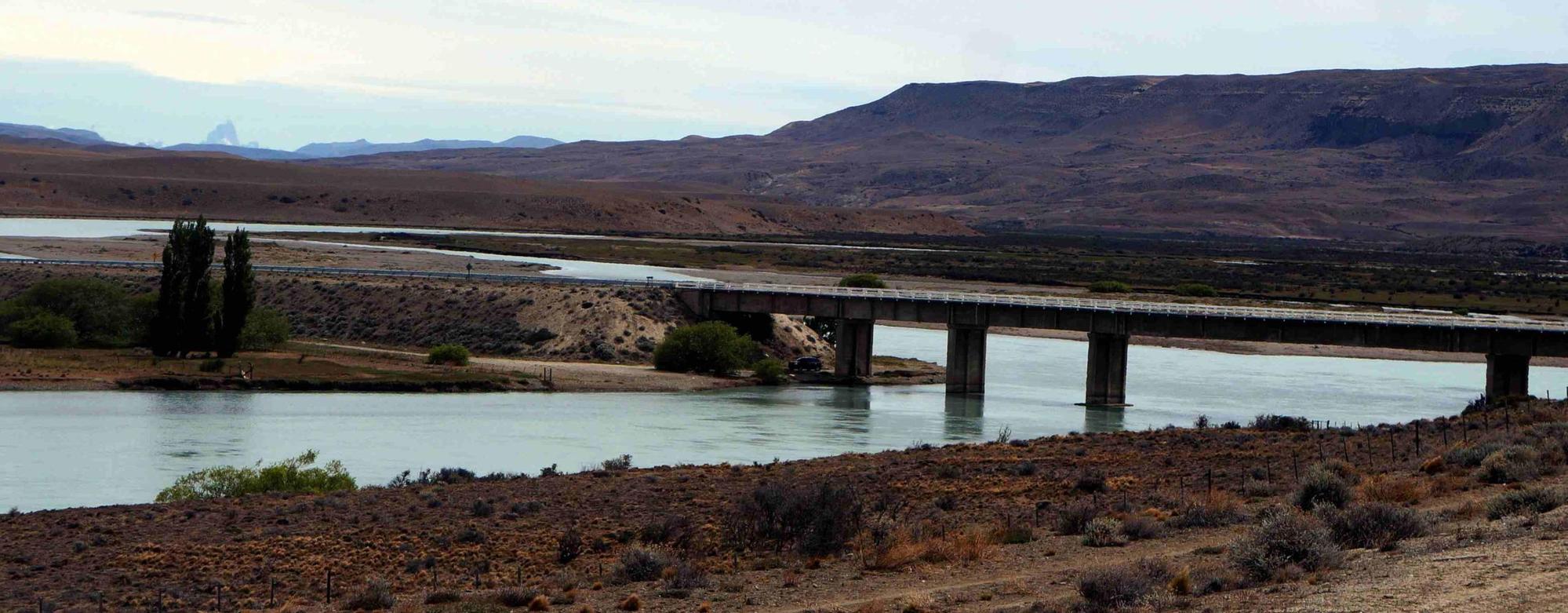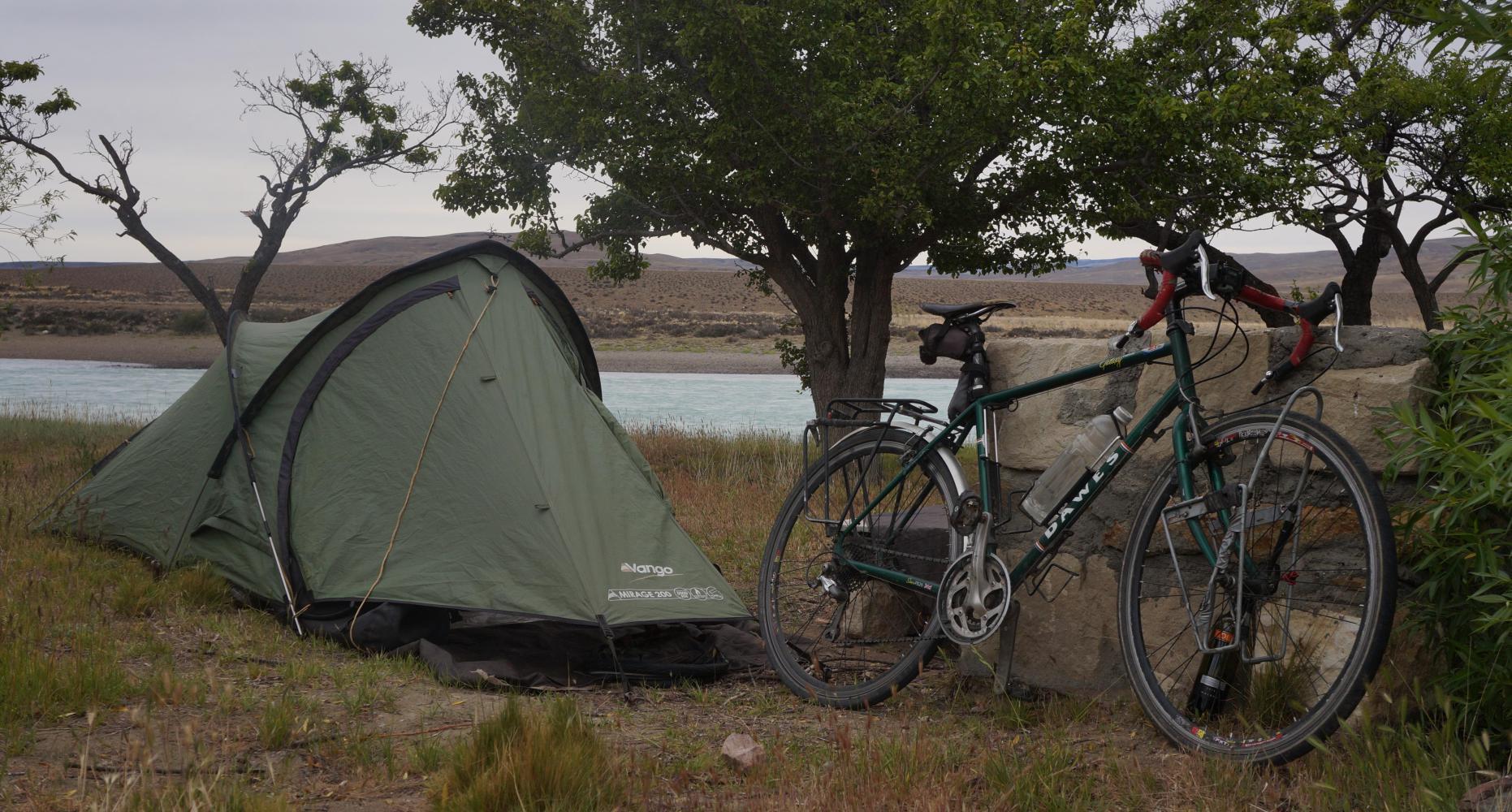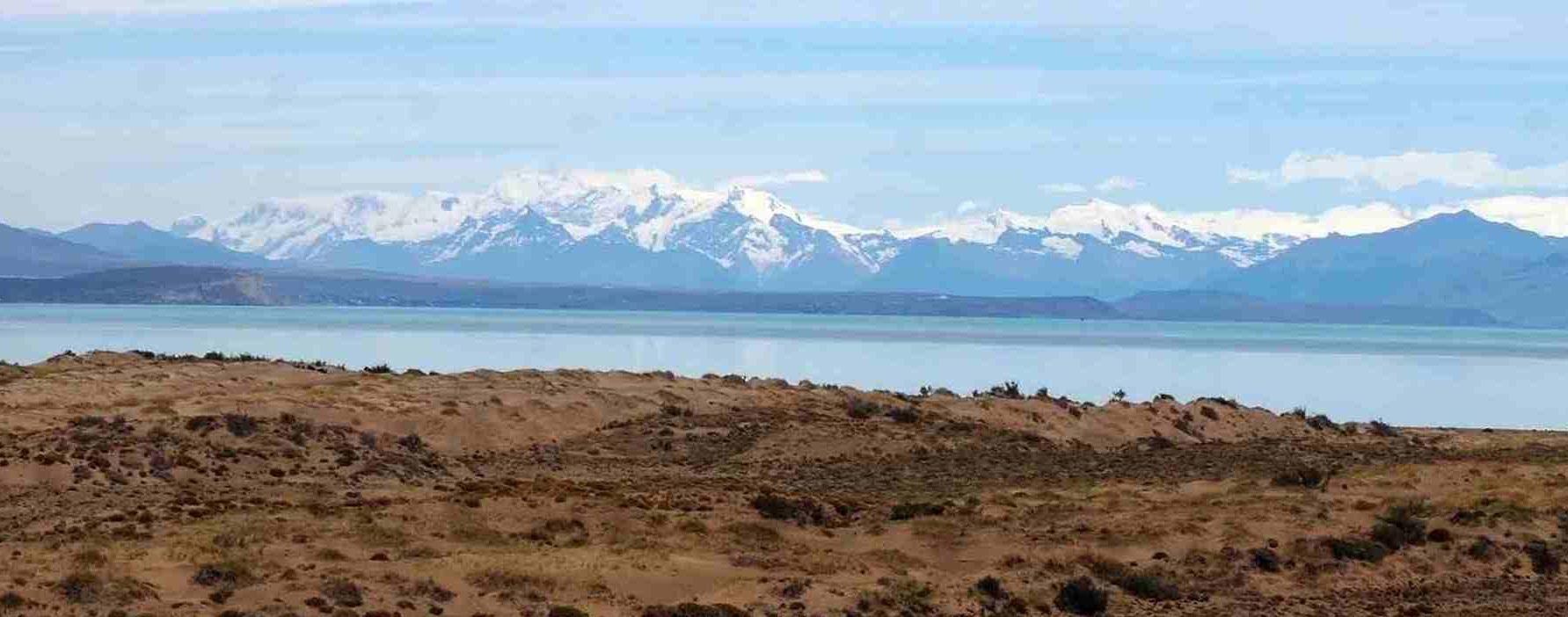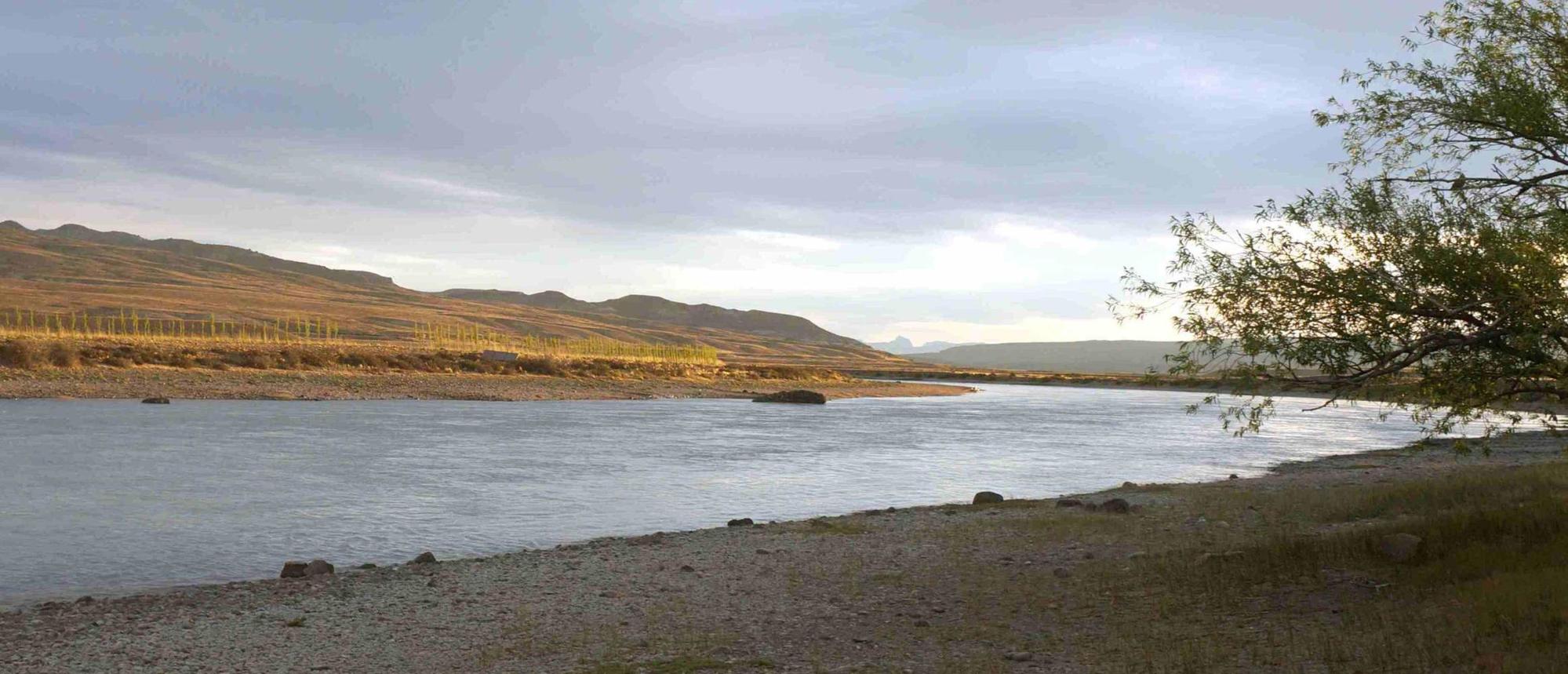December 7, 2016
Wed 7th Dec: El Calafate to Lus Devine (Pinkhouse)
An English cyclist on the campsite said "It's all dry. Five-hundred kilometres to Perito Moreno of nothing!" Typical hyperbole from someone who hasn't ridden Route 40. I reply "I know. I've ridden it before...." I don't understand his concept of nothing, though. This is Patagonia and this is what it's like, it's vast distances and barren landscape which is far from empty of interest as the contours over the distance is forever changing.
Having already ridden south on Route 40, today I set off again on 40, this time though riding north; from Calafate north to the town of Perito Moreno. And expect I'll see things differently, such as hills and valleys which I'd previously approached from the north, I'll see as I approach from the south. It should all look different.
Anyway, the road this morning as I start out, is that same route 11, 32km back east out to route 40 where'll turn left. It's the road I dread because of the heavy volume of traffic. Fast crazy Argentine drivers who'll do anything but slow down when passing, even with traffic coming the opposite way they ram their car on the narrow shoulderless road between me and a truck coming the other way, at speed without any margin for era. Then there's the truck drivers who blare the horn when bearing down from behind in a way that says: get the hell out of the way, I'm coming. They expect because you're riding a bike to ride on the rough gravel shoulder to the side, so to let them pass, so they don't have to slow down.
So it goes without saying I'm glad to make the left turn on to 40, going north. And at a layby at the start of the road I'm stopped taking a photo of a monical of a cycling family, a scribbling in yellow marker pen on the grey metal crash-barrier, when I hear a wheel approach on the gravel. Thinking it was a car stopping at first, until looking up, I see a touring cyclist.
"What ya doin?" come the first words, from no more than a boy on a sports racer with two small panniers and a daypack on his back. Everything a mismatch, like he'd put it all together from donations.
I reply "I'm taking a photo of this here, see!" 'Oh ay see alright!'
I sense a Canadian accent, but I'm not sure. He could be Irish. He wears a tee-shirt with "Irish Times" on the front. And shorts, even though it's cold.
Clem is his name, he tells me, from Canada. And together with such a light load he's carrying only a litre of water and is anxious to reach some place with water by evening as he asks me is there any water, anywhere on this route.
"Well, you could use glacier river water for cooking with. Other than that, there's no ground water. Streams."
Finally, he says he aims to stop at the Pinkhouse this evening, before riding on furiously by himself.

| Heart | 0 | Comment | 0 | Link |
I reach Rio Leone for lunchtime, where I'd camped Friday evening on the way south, and sit in shelter on the river bank picnicking with the fast Currant of the smooth green river slipping pass.
In the afternoon I've a moderate headwind. Then there's a stage where the road passes through a series of twists and turns where I've suddenly tailwind on turning a corner, followed by another corner where I've a lengthy climb into a headwind. Which levels out upon a plateau where follows a long blustery stretch with headwind, until veering right and I'm pushed along by a tailwind again, across a brownish white grass plain. A place I hadn't quite noticed riding the other way on Friday. The road curves left then and begins the long descent to Arroya Turbio and back to Rio Leona; with a steep drop to the left of the road into a ravine, as it rolls downhill, a great hollow branching off from the main river valley, rimmed with chocolate hued hills layered with grey and pink rock strata.
Further up the valley of Leona, it isn't far until I come to the Pinkhouse. It seems the owner isn't happy with it being used as a cyclist refuse, as there's a fence with a "No Paser" sign. This perhaps put off the Canadian, as I don't see him anywhere; but, I find a gap in the fence low enough to easily lift my bike across. I make my way pass the house down to the river bank, which used to be the roadhouse's campsite, and has a garden enclosed by a tall elm tree windbreak. There is a grass lawn with two plum trees and the river's edge is about twenty metres down a smooth river stone beach from the edge of the grass where I've pitched the tent.
Out from the shelter of my campsite, the wind is blowing the river currant backwards along either riverbank, while the main flow surges the opposite way through the middle.
So here I am as I write, watching small birds flitter about the lower branches of the trees and the roll of the river in the background.
PS: Come upon a Swiss couple today, sat below the road lunching. He looking pissed off. The expression said "So this is it. It's terrible." Later, saw them sheltering from the wind on the east side bank of the elevated road, and today wasn't particularly windy.

| Heart | 0 | Comment | 0 | Link |
| Rate this entry's writing | Heart | 0 |
| Comment on this entry | Comment | 0 |

